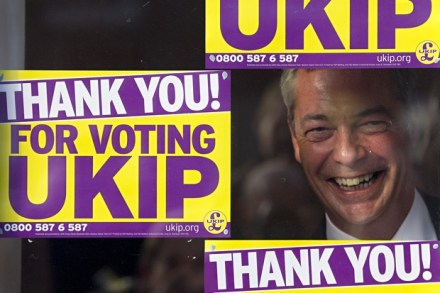Yvette Cooper steals Tory immigration slogan from 2005
At the height of the 2005 election, the then Tory leader Michael Howard (advised by one Lynton Crosby) declared: ‘Let’s be clear. It’s not racist to talk about immigration. It’s not racist to criticise the system. It’s not racist to want to limit the numbers. It’s just plain common sense.’ Howard was lambasted by Labour for the speech, with cabinet ministers wheeled out to slam the Conservatives for ‘scurrilous, right-wing, ugly tactics’. Fast forward nine years and Yvette Cooper’s soundbite sounds a little familiar. In a speech today, Labour’s Shadow Home Secretary declared: ‘It isn’t racist to be worried about immigration or to call for immigration reform.’ Even one of the campaign’s


















